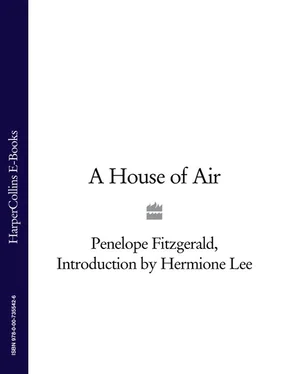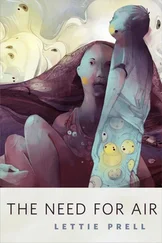The narrator of The Country of the Pointed Firs rents the local schoolhouse, for fifty cents a week, as her study. Here her first visitor, apart from the bees and an occasional sheep pausing to look in at the open door, is Captain Littlepage, an ancient retired shipmaster. His reminiscences are not what we expect: he tells a story of the unseen—a voyage west of Baffin Island which fetched up ‘on a coast which wasn’t laid down or charted’ where the crew saw, or half-saw, the shapes of men through the sea-fog ‘like a place where there was neither living nor dead.’ These were men waiting between this life and the next. Captain Littlepage offers no further explanation, and, indeed, it’s generally felt in Dunnet Landing that he has overset his mind with too much reading, but Mrs Todd, with a sharp look, says that ‘some of them tales hangs together tolerable well.’
Loneliness and hospitality are the two extremes of the hard existence on the coast of Maine. Elijah Tilley, one of the old fishermen, thought of as a ‘plodding man,’ has been a widower for the past eight years. ‘Folks all kept repeating that time would ease me, but I can’t find it does. No, I just miss her the same every day.’ It is his habit to lapse into silence. What more is there to say? Towards the end of her life, Sarah Orne Jewett gave some words of advice to the young Willa Cather: ‘You must write to the human heart, the great consciousness that all humanity goes to make up.’ Otherwise it may remain unexpressed, as it often does in Dunnet Landing.
Joanna, Mrs Todd’s cousin, whose young man threw her over, withdrew to live alone on tiny Shell-heap Island, ‘a dreadful small place to make a world of.’ She had some poultry and a patch of potatoes. But what about company? She must have made do with the hens, her one-time neighbours think: ‘I expect she soon came to making folks of them.’ But Joanna maintained the dignity of loss. She lived, died, and was buried on Shell-heap Island. We are in a world where silence is understood.
When the time comes for the narrator to leave, Mrs Todd, who has become a true friend, hardly speaks all day, ‘except in the briefest and most disapproving way.’ Then she resolutely goes out on an errand, without turning her head. ‘My room looked as empty as the day I came…and I knew how it would seem when Mrs Todd came back and found her lodger gone. So we die before our own eyes; so we see some chapters of our lives come to their natural end.’
Jewett is an expert in the homely and everyday who gives us every now and then a glimpse of the numinous. (That, perhaps, is why Rudyard Kipling wrote to her about The Country of the Pointed Firs , ‘I don’t believe even you know how good that work is.’) She does this, for instance, in a short story, ‘Miss Tempy’s Watchers.’ Upstairs lies the outworn body of kindly Miss Temperance Dent, while in the kitchen, two of her old friends, keeping vigil before the next day’s funeral, gradually nod off. ‘Perhaps Tempy herself stood near, and saw her own life and its surroundings with new understanding. Perhaps she herself was the only watcher.’ In one of the later Dunnet Landing stories, ‘The Foreigner,’ Mrs Todd observes: ‘You know plain enough there’s something beyond this world: the doors stand wide open.’ There are moments, too, of communication or empathy between friends that go beyond understanding. Friendship, for Sarah Orne Jewett, was the world’s greatest good.
On 3 September 1902, her fifty-third birthday, she was thrown from her carriage when the horse stumbled and fell. She suffered concussion of the spine and never entirely recovered. ‘The strange machinery that writes,’ as she described it, ‘seems broken and confused.’ For long spells she was in fact forbidden by her doctors to read or write, which must have been a cruel deprivation. In 1909 she was back in South Berwick, where she had the last of a series of strokes, and died in the house where she was born.
Books and Company, Winter 1999
GEORGE ELIOT The Will to Good
An Introduction to Middlemarch
George Eliot began what is now Book Two of Middlemarch early in 1869. She wrote slowly, because for her it was a year of illness and trouble, and in the winter of 1870 she put this work aside and began a new story that is now Book One, ‘Miss Brooke.’ She made a note in her journal that the ‘subject…has been recorded among my possible themes ever since I began to write fiction.’ What is this subject?
Middlemarch is set in the years just before the Reform Bill of 1832. In Chapter 10 Mr Brooke, the uncle and guardian of Dorothea and her sister Celia, gives a dinner party at his house, Tipton Grange. Maddening, vacillating, kindhearted Mr Brooke is a local magistrate and a countryman—so too, of course, is the Rector, Mr Cadwallader, with his magnificently sharp-tongued wife. The Reverend Mr Casaubon, scholarly, withering into dry old age, is also a man of property, as is Sir James Chettam, Brooke’s guileless neighbour. But to meet these gentry Mr Brooke has rather enterprisingly invited guests from Middlemarch itself: the upper ranks, that is, of the townspeople—Mr Vincy, the mayor, Mr Chicheley, the coroner, and the Evangelical banker, Mr Bulstrode. They are talking about Dorothea and about Lydgate, the new doctor. These two have also been talking to each other, discussing model housing and the proposed fever hospital, and we get Lydgate’s first impression, as he leaves the party, of Dorothea: ‘She is a good creature—that fine girl—but a little too earnest.’ She would not do, therefore, for Lydgate, who wants relaxation after his work, and smiling blue eyes. This is George Eliot’s particular method of turning an incident around, so that we can look at it with her, and from different angles. In this way we have been introduced to the field of action and the beginning of what she calls ‘the stealthy convergence of human lots.’
George Eliot’s living creed—painfully arrived at—was meliorist (a word she believed she had invented). We should do all we can, during a short human lifetime, to achieve ‘some possible better,’ and the ‘should’ is all the more binding because we cannot have a direct knowledge of God. But the individual will to good is affected by social and natural forces—by the kind of society we are born into and the kind of temperament we are born with. In Middlemarch Eliot is considering a money-making professional society, based on Coventry, where she lived from 1841 to 1850.
Middlemarch is a manufacturing town—‘the people in manufacturing towns are always disreputable,’ says Mrs Cadwallader—with a corruptible local paper, electioneering for and against a reforming parliament, professional charities, and deeply distrusted advances in medicine and hygiene. Everyone knows everyone else’s business. What is to be hoped for from this thriving borough, where nearly all are loudly certain of their own opinion? ‘I know the sort,’ cries Mr Hawley, the town clerk, hearing that Casaubon’s cousin, Ladislaw, is of foreign extraction; ‘some emissary. He’ll begin with flourishing about the Rights of Man and end with murdering a wench. That’s the style.’ At the Tankard in Slaughter Lane it is ‘known’ to Mrs Dollop, the landlady, that people are allowed to die in the new hospital for the sake of cutting them up, ‘a poor tale for a doctor, who if he was good for anything should know what was the matter with you before you died.’ To be ‘candid’ in Middlemarch means that you are about to let a man know the very worst that is being said about him. ‘The gossip of the auction room, the billiard room, the tea table, the kitchen,’ as Frank Kermode puts it, ‘is the more or less corrupt blood of the organism.’ The challenges to Middle-march come from young Dr Lydgate and young Miss Brooke.
Читать дальше












